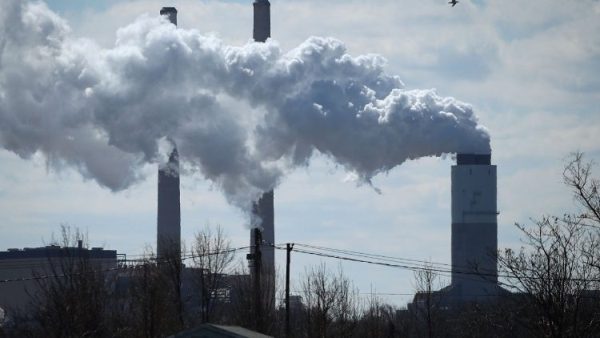WMO alarmed over record CO2 levels in atmosphere
 The United Nations agency says that concentrations of carbon dioxide (CO2) in the atmosphere reached a record level last year. The situation continues to worsen this year despite the industrial slowdown because of the Covid-19 pandemic.
The United Nations agency says that concentrations of carbon dioxide (CO2) in the atmosphere reached a record level last year. The situation continues to worsen this year despite the industrial slowdown because of the Covid-19 pandemic.
CO2 levels reached a new record of 410.5 parts per million (ppm) in 2019, four years after breaching the global threshold of 400 ppm in 2014, according to the World Meteorological Organization (WMO), the UN’s specialised agency for weather and climate.
The Geneva-based intergovernmental organization made the observation in its report entitled, “WMO Greenhouse Gas Bulletin”, which was released on Monday.
Steady rise - lockdown “just a tiny blip”
“Such a rate of increase has never been seen in the history of our records. The lockdown-related fall in emissions is just a tiny blip on the long-term graph. We need a sustained flattening of the curve”, WMO Secretary-General Petteri Taalas said in a statement. He pointed out that reduced activity associated with Covid-19 lockdowns is expected to cut carbon emissions by 4-7 percent this year.
Oksana Tarasova, WMO Chief of Atmospheric and Environment Research Division, told a news conference in Geneva that although it looked like the pandemic had brought the world to a standstill, carbon emissions had continued almost unabated because lockdowns only reduced mobility, not overall energy consumption.
Tarasova explained that the CO2 level we have now in the atmosphere has accumulated since 1750, “so it's every single bit which we put in the atmosphere since that time that actually forms the current concentration.”
“It's not what happened today or yesterday, it’s the whole history of the human economic and human development, which actually leads us to this global level of 410,” she said.
The report states that CO2 levels rose by 2.6 ppm in 2019, faster than the average rate for the last ten years, which was 2.37 ppm, and are now 48 percent higher than the pre-industrial level.
Pandemic no solution to climate change
According to a tweet on Monday, Covid-19 has had no measurable impact on CO2 concentrations in the atmosphere (cumulative past and current emissions). “But the lockdown provides a platform to grow back better and take climate action.”
“The Covid-19 pandemic,” Taalas stressed, “is not a solution for climate change.”
“However, it does provide us with a platform for more sustained and ambitious climate action to reduce emissions to net zero through a complete transformation of our industrial, energy and transport systems.” According to him, the needed changes are economically affordable and technically possible and would affect our everyday life only marginally.
Carbon commitments
Talaas pointed out that the 2015 Paris Agreement pledged to try and stop temperatures rising by more than 1.5 degrees Celsius above pre-industrial levels. For this to happen, he said, the world needs to switch from coal, oil and gas-fired energy towards solar, wind, hydropower and nuclear power, as well as adopting less-polluting modes of transport, including electric vehicles, biofuels, hydrogen and bicycles.
He welcomed the good news that a growing number of countries have committed themselves to reach carbon neutrality by 2050, which was required to meet the 1.5 degree target.
“There is no time to lose,” he urged.
US President-elect Joe Biden, he said, indicated during his election campaign that he would initiate a big financial stimulus for carbon-friendly technologies. He also expressed support for the idea of making America carbon neutral by 2050.
Talaas regards this as good news for the world, as it could have a domino effect that might motivate other countries to join the movement. (Source: UN)
Vatican News staff writer
Source: vaticannews.va

